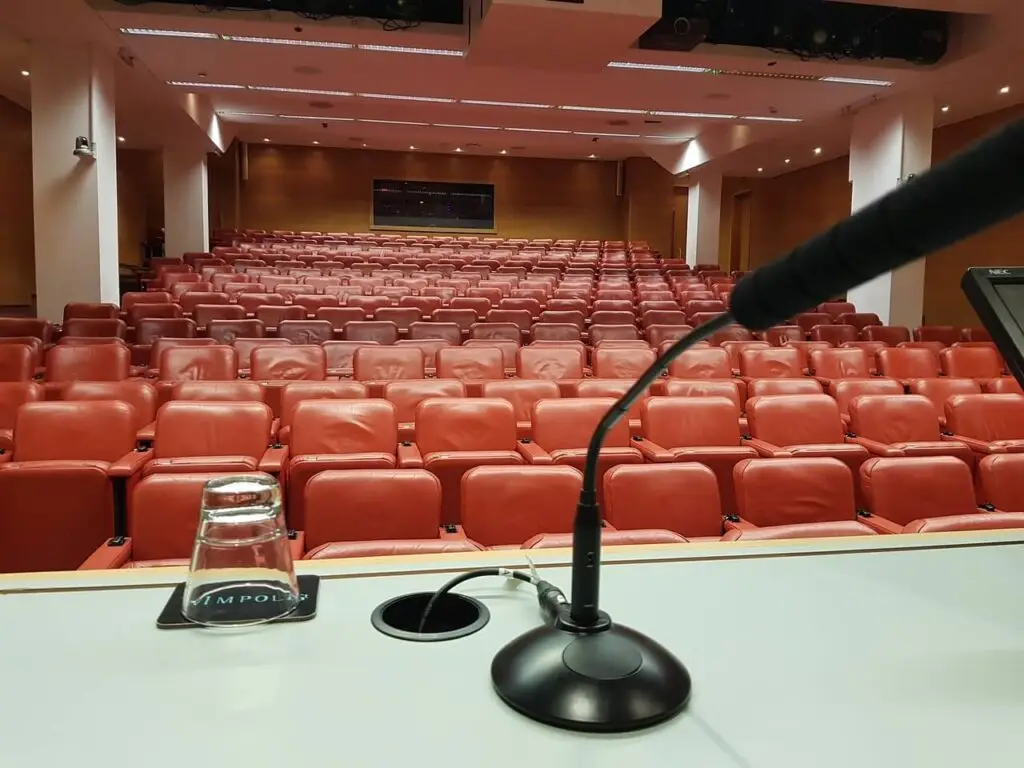Follow these four steps to increase your chances of landing a lecturing role after your PhD: gaining teaching experience, gaining experience in the ‘real world’, building your network, and seeking practice in funding applications.
1. Gain teaching experience, and do more than the bare minimum
This is paramount. When interviewed for lecturing posts, you will be asked:
– How do you engage your class?
– How do you incorporate tasks and activities into your teaching practice?
– How do you adapt your teaching style across different year groups?
These are pretty difficult to answer if you have little to no teaching experience! Therefore, you need to speak to your supervisor early into your PhD and ask about teaching opportunities. Ask if you can guest lecture at other institutions as well. This will be a great insight into how other departments operate, and you’ll build contacts along the way who may be hiring in the future.
Try to gain varied experience across different modules and year groups, and if possible, consider taking on other tasks such as module leadership, undergraduate supervision, pastoral support, and extra marking duties (each university will have different teaching restrictions for PhD students, so do your research on this). You should be paid for these extra duties, so fight your corner if this work is being passed to you without further remuneration.
This step-up in responsibility is what will significantly aid your applications for future lecturing roles. When teaching as a PhD student, consider doing more than the bare minimum of taking on a module handed to you by an academic who provides you with all the material prepared. Yes, it is teaching, but it’s teaching with stabilisers on. Be proactive and show an eagerness to contribute more to your teaching duties – your CV will look a whole lot better by the end of it.
2. Work in the real world
Working in an applied setting that relates to your research topic will look great on future applications for lecturing posts. It shows you have a wider understanding of the challenges of transferring research findings into ‘real world’ situations. Furthermore, applied experience will aid your teaching by bringing module content to life, and gaining respect from your students. Students often enjoy hearing lecturers speaking about their lived experience in common career pathways.
Here are some questions I have been when interviewing for lecturing roles:
– Do you have industry connections that can be used for research projects and student placements?
– What are the practical challenges of conducting research in your field?
– How would you ensure your teaching modules relate to current industry trends?
My own industry experience in professional sport was highly valuable in academic job interviews. I could present a list of research connections, and explain how my applied experience would impact the quality of my teaching and research in Sport and Exercise Science.
If you feel you lack relevant work experience in your field, I strongly advise volunteering or finding a placement to top up your CV. Your institution may even be able to fund you for this, so do some research and see what is available to you.
3. Publish your research and build connections
The importance of publications will depend by institution and job pay grade, but always look to publish during your PhD if you want to be a lecturer. Learn the publication process early into your PhD, even if you haven’t started writing yet! It will make things feel less daunting by the time you start to submit manuscripts to journals.
As well as your own PhD publications, consider contacting academics from other institutions who share your research interests. Network and see if there is scope to collaborate on further projects which result in additional publications, as well as build contacts for future job applications.
Bear in mind that additional publications do not typically result in the same workload as your PhD projects, where you are the leader. When collaborating, your name can go on a paper by completing a chunk of the work, such as writing a section of the paper, collecting data, or running the statistics. Whilst your PhD will remain to be your most important work, your collaborations show interview panels that you have initiative, exhibit versatility, and work well in a team.
Be tactical with who you collaborate with. If you already know which institutions you would like to work at in the future, contact their staff and build the contacts now. It will subsequently show off your research skills, and ultimately give you a boost with future applications. Academia is a small world, so the old adage of ‘it’s not what you know, it’s WHO you know’ can put you in good stead for the future.
4. Seek research funding practice
When it comes to your research, an interview panel will want to understand the impact of your research (partly based on your publication statistics), as well as the funding it can generate. Evidence of research grant income can make you a very desirable candidate for lecturing positions, and increase the chances of landing permanent positions in academia. These are questions you could be asked at interview:
– What is your experience of seeking funding for your research?
– If you worked here, how would you envisage gaining funding for your research projects?
An interview panel would not expect a PhD student to have generated impressive amounts of research grant funding (or even any funding at all!), but I would recommend you at least submit a research grant proposal, or collaborate with a research team on their funding application.
Get used to the process of applying for funding (and being rejected!) and learn about the main research funding options in your field. I didn’t do this during my PhD, and I tripped up at interviews when queried on my knowledge of research funding and my own plans for gaining funding if I was offered the role.
Final Thoughts
Each of the four suggestions I have written about take time. Teaching could take up a whole academic year, a ‘real world’ placement can last three months, we all know publishing research is a slow process, and you’ll be waiting around to hear the outcome of your grant application. You can’t squeeze this all into the final stages of your PhD.
Therefore, I can’t stress enough the importance of considering these actions early in your PhD. Query the possibility of teaching ASAP (I was put in a class two weeks after my PhD started!), network with academics from the beginning, and book a session with your careers adviser to start planning for the future.
Preparation is key!




